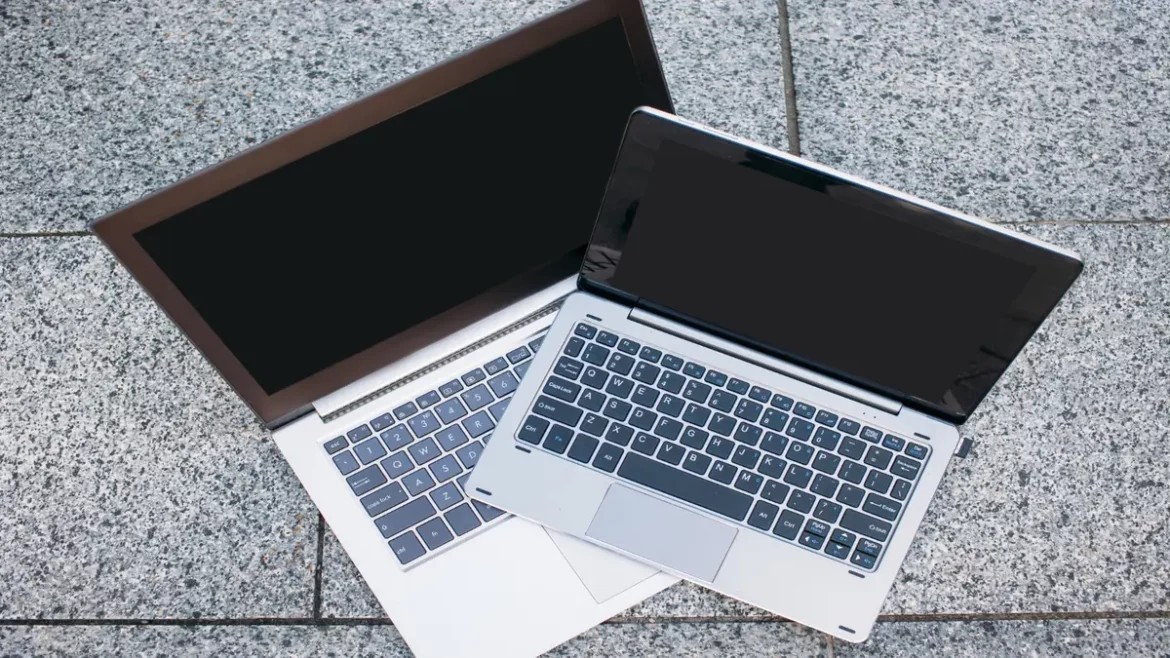Although Chromebooks and laptops are sometimes used interchangeably, there are particular distinctions that consumers should be aware of before purchasing either device. We’ll address the most frequent queries on Chromebook vs laptop, like what makes Chromebooks unique, who should use them, and what to look for when purchasing one.
A Chromebook: What is it?
A Chromebook is a laptop that runs ChromeOS, a customized version of the operating system created by Google that is more dependent on cloud-based and linked services than standard operating systems like Windows or MacOS. Chromebooks resemble most laptops and notebook PCs in terms of appearance. Still, they typically have less powerful hardware because they rely more on cloud-based services than on locally stored software that demands more processing power.
What Distinguishes a Laptop from a Chromebook?
Aside from the operating system, you may ask for answers for Chromebook vs laptop. Well, a few more distinguishing features make Chromebooks unique among laptops.
In this analogy, Chromebook vs laptop, a laptop running ChromeOS that is portable is called a Chromebook. Compared to their laptop equivalents, they often have processors with less power, less RAM, and less local storage. Nonetheless, a few top-tier Chromebooks exist that surpass the specifications of the majority of modern laptops.
A laptop is a portable computer running a typical operating system, such as Apple’s MacOS or Microsoft’s Windows. These operating systems mainly depend on locally installed software in their internal storage. The main distinction between laptop vs Chromebook is their different approaches to software and service access.
For instance, someone modifying a picture on a typical laptop could utilize online photo-editing applications like Pixlr, Imgur, or Photoshop or locally installed software like Microsoft Paint, Adobe Photoshop, or GIMP (beta). One would have to use web apps to accomplish the same task on a Chromebook because ChromeOS does not support locally installed programs like Paint and Photoshop.
Can a Chromebook Accomplish Everything a Laptop Can?
Nearly. In short, a Chromebook can perform all the tasks that most people associate with laptops. This includes web browsing, social media, email, messaging, streaming media, word processing, spreadsheets, video conferencing, remote learning, and even simple picture and video editing.
However, for other applications, laptops are more appropriate for specialized and professional use cases. For example, because most professional writers these days write on the web, including myself, we can get by just fine with a Chromebook. However, professional picture and video editors will require a Windows or MacOS laptop to use programs like Adobe Photoshop or DaVinci Resolve, as ChromeOS does not support local software for these programs.
Because of this, Chromebooks are excellent for people who work or play only online, such as students, office professionals, and gamers. However, they are less suitable for users who require the frequently more sophisticated features of locally installed software.
Is It Possible to Play Games on Chromebooks?
There are fewer gaming options on Chromebooks compared to traditional computers. Chromebooks with gaming capabilities are usually restricted to two categories of gaming: cloud-based gaming services and mobile games through Google Play. Dedicated gaming laptops can play almost any game compatible with a desktop computer, though probably at a lower frame rate.
Any Chromebook that supports the Android app store may play mobile games from Google Play. If you have a touchscreen Chromebook, these games function like a smartphone or tablet. You must select games that accept keyboard, mouse, or touchpad input if your Chromebook does not have a touchscreen.
Do Chromebooks Require an Internet Connection to Function?
Yes, in theory, but some jobs can be finished offline. Because Chromebooks mostly rely on online services and cloud storage, such as web apps, a loss of connectivity could prevent you from accessing critical files or necessary software.
A Chromebook can still do some fundamental tasks without an internet connection. This covers activities like accessing locally stored files, including movies, songs, and podcasts; utilizing Google’s productivity tools, like Docs and Sheets; and reading or editing locally stored documents and photos.
Are Chromebooks Pricy?
Chromebooks are among the most affordable portable computers available. Their internal components may be of inferior quality because of their dependence on cloud-based and connected services. For reliable Chromebook models that retail for less than $300 and occasionally less than $100, this leads to lower hardware costs. You could get a basic laptop for about the same money, but the components and build quality would probably be subpar. Meanwhile, Chromebooks in this price bracket are almost as feature-rich as those that are far more costly.
Final Words
Over the past few years of debate on Chromebook vs laptop, Chromebooks have developed into more competitive and functional devices when compared to their Windows and Mac OS counterparts. When deciding between a Chromebook and a laptop, key distinctions exist, including cost, storage capacity, and battery life. Chromebooks are great for regular usage, particularly for word processing, social networking, and email.

